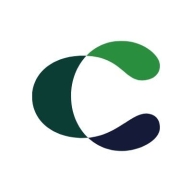

OpenText Core Application Security and Contrast Security Assess compete in the application security space. Contrast Security Assess holds the upper hand due to its dynamic analysis capabilities, providing better value despite its higher pricing.
Features: OpenText Core Application Security offers robust threat detection, vulnerability management, and integrated remediation workflows. Contrast Security Assess excels in identifying vulnerabilities during runtime, offering real-time feedback and seamless DevOps integration.
Room for Improvement: OpenText Core Application Security could enhance its dynamic analysis and real-time feedback capabilities. It could also improve integration into DevOps processes. Contrast Security Assess might benefit from competitive pricing strategies, more comprehensive static analysis features, and expanded documentation for user guidance.
Ease of Deployment and Customer Service: OpenText Core Application Security provides a straightforward deployment process with strong support and detailed documentation. Contrast Security Assess boasts a streamlined deployment process and a highly responsive customer service team.
Pricing and ROI: OpenText Core Application Security offers competitive pricing with a strong ROI, while Contrast Security Assess, although higher priced, offers significant ROI due to its advanced features, making the additional investment worthwhile for dynamic application security needs.
| Product | Market Share (%) |
|---|---|
| OpenText Core Application Security | 3.9% |
| Contrast Security Assess | 0.8% |
| Other | 95.3% |


| Company Size | Count |
|---|---|
| Small Business | 2 |
| Midsize Enterprise | 3 |
| Large Enterprise | 6 |
| Company Size | Count |
|---|---|
| Small Business | 16 |
| Midsize Enterprise | 8 |
| Large Enterprise | 43 |
Contrast Security is the world’s leading provider of security technology that enables software applications to protect themselves against cyberattacks, heralding the new era of self-protecting software. Contrast's patented deep security instrumentation is the breakthrough technology that enables highly accurate assessment and always-on protection of an entire application portfolio, without disruptive scanning or expensive security experts. Only Contrast has sensors that work actively inside applications to uncover vulnerabilities, prevent data breaches, and secure the entire enterprise from development, to operations, to production.
OpenText Core Application Security offers robust features like static and dynamic scanning, real-time vulnerability tracking, and seamless integration with development platforms, designed to enhance code security and reduce operational costs.
OpenText Core Application Security is a cloud-based, on-demand service providing accurate and deep scanning capabilities with detailed reporting. Its integrations with development platforms ensure an enhanced security layer in the development lifecycle, benefiting users by lowering operational costs and facilitating efficient remediation. The platform addresses needs for intuitive interfaces, API support, and comprehensive vulnerability assessments, helping improve code security and accelerate time-to-market. Despite its strengths, challenges exist around false positives, report clarity, and language support, alongside confusing pricing and package options. Enhancements are sought in areas like CI/CD pipeline configuration, report visualization, scan times, and integration with third-party tools such as GitLab, container scanning, and software composition analysis.
What features define OpenText Core Application Security?Industries like mobile applications, e-commerce, and banking leverage OpenText Core Application Security for its ability to identify vulnerabilities such as SQL injections. Integrating seamlessly with DevSecOps and security auditing processes, this tool supports developers in writing safer code, ensuring secure application deployment and enhancing software assurance.
We monitor all Application Security Tools reviews to prevent fraudulent reviews and keep review quality high. We do not post reviews by company employees or direct competitors. We validate each review for authenticity via cross-reference with LinkedIn, and personal follow-up with the reviewer when necessary.